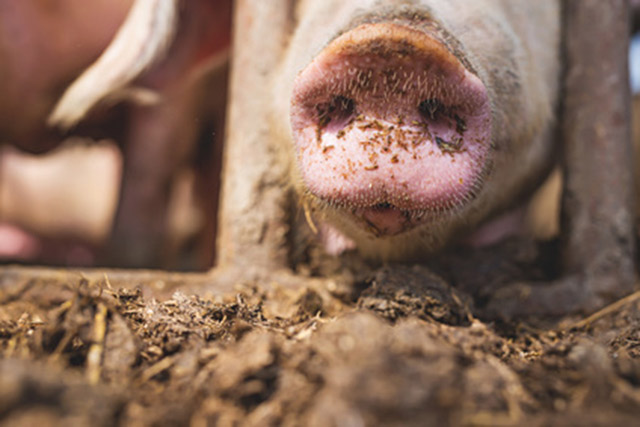A dangerous superbug was found on an American pig farm, according to an investigation from an Ohio State University team.
The overuse of antibiotics is now an epidemic in the United States and it is creating antibiotic resistance.
They are prescribed for almost everything.
The issue with taking too many antibiotics is that they kill good bacteria in the gut, which makes it more difficult to fight infections in the future.
The immune system gets used to them and creates antibiotic resistance.
A report published in the New England Journal of Medicine showed that in 2010, health care providers prescribed “258.0 million courses of antibiotics in 2010, or 833 prescriptions per 1000 persons.”
The Centers for Disease Control and Prevention (CDC) is now reporting that the infectious organisms that antibiotics usually target have adapted to the drugs, because they have been used for so long.
Because of this antibiotic resistance, multi-resistant bacteria called “superbugs” are starting to become more prevalent.
Dr. Thomas Wittum of Ohio State University and his team found what is called a carbapenem-resistant enterobacteriaceae on a pork farm in the Midwest.
CRE’s have been classified as a serious health threat by the Centers of Disease Control and Prevention (CDC), which stated that they have “become resistant to all or nearly all the antibiotics we have today.” Even carbapenems, which are one of the last groups of antibiotics for treating superbugs, don’t work on CRE’s.
“We weren’t expecting this, and we were quite surprised,” Wittum told Maryn McKenna at Fern’s AG Insider. “We had predicted that the common CREs in U.S. health care would be the ones we would first start to see in animals, but this is a really unusual one.” This case is particularly unusual, considering that carbapenems are not even used on animals.
This means that somehow, bacteria that is resistant to one of human’s ‘last line of defense’ drugs against superbugs ended up on a pig farm where the animals didn’t even receive the antibiotic.
More research is needed to find out how this happened, but one potential theory is that humans are introducing these drug resistant bacteria strains into livestock farms. Then, these bacteria develop into superbugs as they are exposed to other antibiotics that livestock are treated with.
As David Wallinga, a physician and senior health officer at the Natural Resources Defense Council, put it to Fern’s Ag Insider, “The pattern we see with enormous antibiotic use in livestock, including pigs, is: ‘Oh, that’s not a problem.’ And then the next stage is, ‘Well, it’s a hypothetical that’s a problem.’ And then, ‘Well, it might be a problem in the United States, but people aren’t dying yet.’ And the last stage is, ‘Well, not very many people are dying.’ As a public-health person, I don’t want to see us get to that last stage.”
Note: None of the information in our website is intended to diagnose, treat, cure or prevent any illness or disease. The content on our website is for educational purposes only.
DON’T FORGET to sign up for our weekly newsletter to get our latest articles, updates, free recipes and giveaways.
What you need to know about antibiotic resistance
Roundup herbicide triggers antibiotic resistance.
Rivers and antibiotic resistance: Is there a connection?
REFERENCES:
1. “Another Scary Superbug Has Been Found on an American Hog Farm.” TakePart. TakePart, n.d. Web. 22 Jan. 2017.
2. “Bacteria with Resistance to Important Class of Antibiotics Found on Farm in Midwest.” Food and Environment Reporting Network. FERN’s AG Insider, n.d. Web. 22 Jan. 2017.
3. “Antibiotic / Antimicrobial Resistance.” Centers for Disease Control and Prevention. Centers for Disease Control and Prevention, 04 Mar. 2014. Web. 22 Jan. 2017.

















